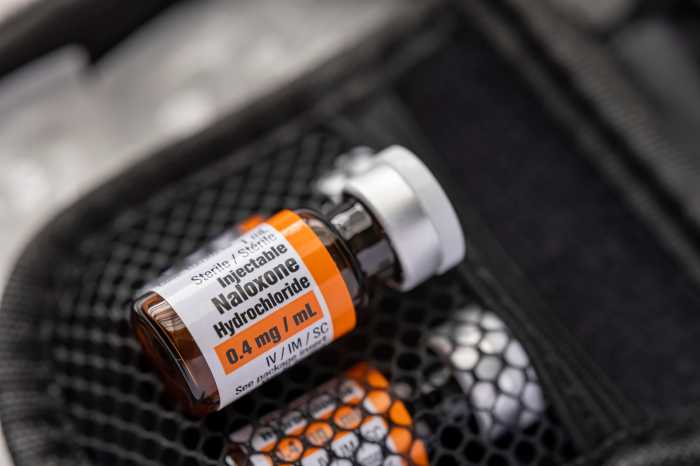BY PERRY N. HALKITIS, Ph.D., M.S. with JACLYN-BLACHMAN-FORSHAY | Last year, the New York City Department of Health and Mental Hygiene (NYCDOHMH) terrorized us with their prevention campaign “It’s Never Just HIV.” My colleagues at Gay Men’s Health Crisis, who recognized the inflammatory nature of this prevention effort, held a community forum where leaders of the health department argued their perspectives — while many members of the community expressed their outrage.
In this HIV public service announcement, we were warned about many complications of HIV infection — including the increased risk for anal cancer among gay HIV-positive men (a fact that medical science supports). It was not the message with which we took issue, but the manner in which the message was portrayed. Recall the television ad! It was a graphic image of a luminescent, radioactive ass that scared the heck out of ALL gay men. For me personally, it made my annual anal Pap smear an event of great anxiety, one that I considered canceling at least a dozen times.
Many of us know that genital human papilloma virus (HPV), of which there are more than 40 types, is the pathogen that can cause anal or genital warts (HPV types 6 and 11 may cause warts). What is less known, however, is that there are certain types of HPV (such as HPV types 16 and 18) which can serve as the causes of anal cancer. National and local health efforts have been undertaken to educate the population about the link between HPV and cervical cancer in women. However, associations between HPV and anal cancer — which as we know may affect more than gay men — remain few and far between. There are clearly articulated policies for women’s health, including recommended immunizations against HPV for women and young girls as described in the city’s health bulletin urging vaccination (Volume 7, Number 1). For men, particularly gay men who may be most at risk for contracting a form of HPV that may cause anal cancer, the recommendations are less clear and definitive. In fact, this message is all but absent.
While the NYCDOHMH guidelines recommend anal Pap smears for HIV-positive men on a routine basis, the NYCDOHMH Sexually Transmitted Infections (STI)Screening Guidelines for Sexually Active Patients lists the Pap as “N/A” (not applicable) for other men who have sex with men (MSM). Although the risk for anal cancer may be less for HIV-negative men, one still is left to wonder how a health commission — focused on warning about the dangers of anal cancer in their HIV prevention campaign — is somewhat aloof and silent in its recommendations for gay men regarding HPV (both in terms of screening for anal cancer and routine vaccination of young men and boys before they become sexually active).
To make matters worse, some doctors treating HIV-positive gay men also do not routinely undertake Pap smears of their patients. According to Dr. Stephen Goldstone of Mount Sinai Hospital in New York City, author of “The Ins and Outs of Gay Sex: A Medical Handbook for Men” and one of the world’s leading authorities on anal cancer in gay men, “There is a real embarrassment on the part of both patients and healthcare providers to deal with sexual health issues and anal health issues. Most patients don’t even get a rectal exam let alone an anal Pap smear. It is unfortunate that many anal cancers I see are quite large and would have been picked up much sooner had the patient just had a rectal exam.”
To date, the Centers for Disease Control and Prevention (CDC) recommends routine HPV vaccination for females. In 2006, the HPV vaccine Gardasil was licensed for use in females ages 9 through 26, with recommended routine vaccination for girls ages 11 to 12 and catch-up vaccination for females ages 13 to 26. In 2009, a second vaccination, Cervarix, was licensed for use in females ages 9 to 26. Following suit, the Advisory Committee for Immunization Practices (ACIP) of the CDC and the NYCDOHMH adopted the Gardasil recommendations. Additionally, the city recommends Pap smears for women beginning at age 21 regardless of sexual activity, and every two years thereafter if the result is negative. After age 30, the test can be undertaken every three years after three consecutive negative Paps. More frequent testing is recommended for women living with HIV.
What is less well known is that in 2009, the CDC ACIP also indicated that HPV vaccination with Gardasil may also be used for males ages 9 to 26. A report released in February 2011 showed that male vaccination had high efficacy for the prevention of HPV-related anal cancers, genital warts and persistent infection. It was also safe, acceptable and cost-effective. Yet the rollout of such vaccination in our city is slow. This is because the ACIP HPV Workgroup failed to reach consensus on the recommendation for the routine vaccination of males, as well as on how it relates to vaccination of gay, bisexual and other MSM. All the while, more and more of us are becoming infected with cancer-causing HPV.
Despite the clear evidence that such a vaccination program may improve the health of the gay community — and men’s health in general — health policy makers are dragging their feet (reminiscent of the early days of the AIDS epidemic when only a few brave doctors took notice and ACT-Up fought for our lives). My colleague and friend Sara Gillen (Vice President for Community Health Services at Harlem United) discovered the confusion in the medical community when she took her young son to his primary care provider for his school checkup and requested the HPV vaccination, only to have the provider question why her son should be vaccinated. Good parenting, bad medical practice!
There is now some evidence, thanks to the pioneering efforts of Dr. Stephen Goldstone, indicating that vaccination may help to deter onset of anal cancer even in HIV-positive men who are already infected with cancer-causing HPV types. According to Goldstone, “There is some research data in both men and women who have had high-grade dysplasia that vaccination can prevent recurrence of the problem. While the number of cases is very limited, the data is clearly exciting. I think the most important point, however, is that people should get vaccinated even if they have already had a problem.”
The concerns regarding HPV and gay men extend into the overall medical practices regarding anal health. In our current study of 18 and 19-year-old gay men, locally named P18, we found that the majority of them had not been routinely screened anally for any STI. Of 598 men, 14 percent reported ever having been checked for an anal STI. Of those who had been screened, their most recent test was over one year prior to the survey, despite the fact that these young men are sexually active with male partners.
This is all to say, of course, we as gay men must be the ones who control our own health. Practicing safer sex to prevent the spread of HIV, HPV and other STIs should be front and center. As the NYCDOHMH indicates, it is truly more than just HIV; unfortunately, they are not willing to do anything about it, at least not until the CDC wakes up and recognizes that HPV vaccination for males is as essential as it is for females, and is an issue that has great significance for gay men.
In the interim, intelligent, gay and gay-friendly doctors can vaccinate you against HPV whether or not you have been exposed to the anal cancer-causing viruses. Ask your health care provider about that. (Unfortunately, do not expect your insurance provider to pay.) You should also be routinely checked for STIs (including but not limited to HIV), and should be screened for penile, anal and oral infections. Gay men, especially HIV-positive men, should undergo annual Pap smear screening. At the end of the day, the best medicine we have in this country for our health is preventive medicine. The effectiveness of prevention rests heavily on our shoulders.
Perry N. Halkitis, Ph.D., is Professor of Applied Psychology, Public Health, and Medicine and Director of the Center for Health, Identity, Behavior & Prevention Studies (CHIBPS); Jaclyn Blachman-Forshay, B.S. is a researcher at CHIBPS.




































